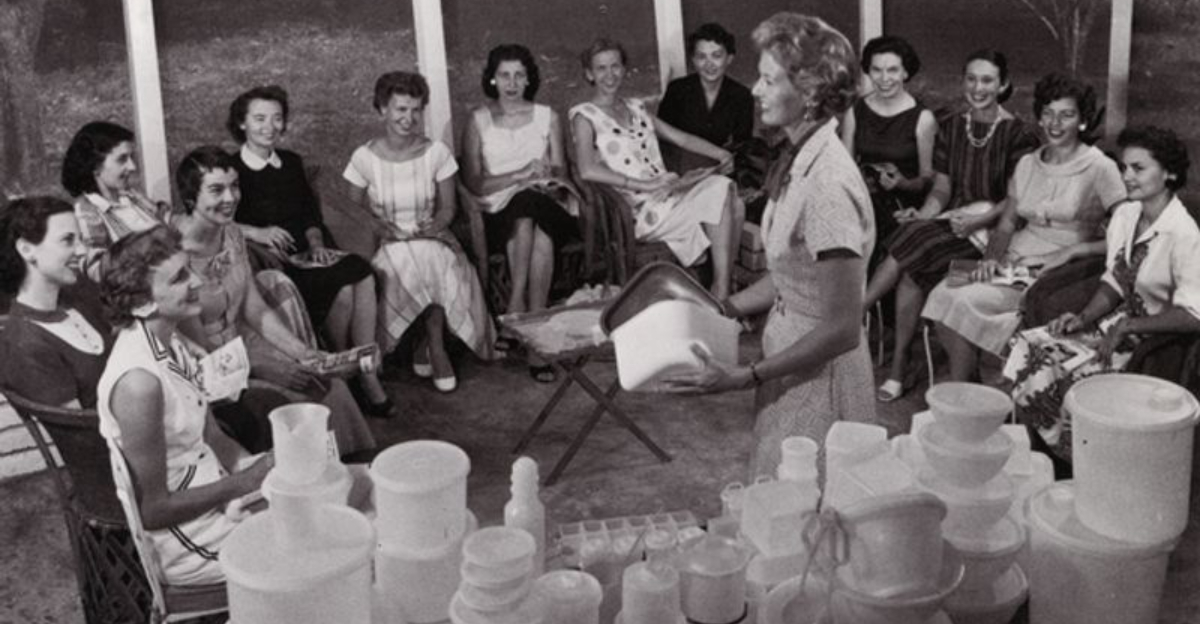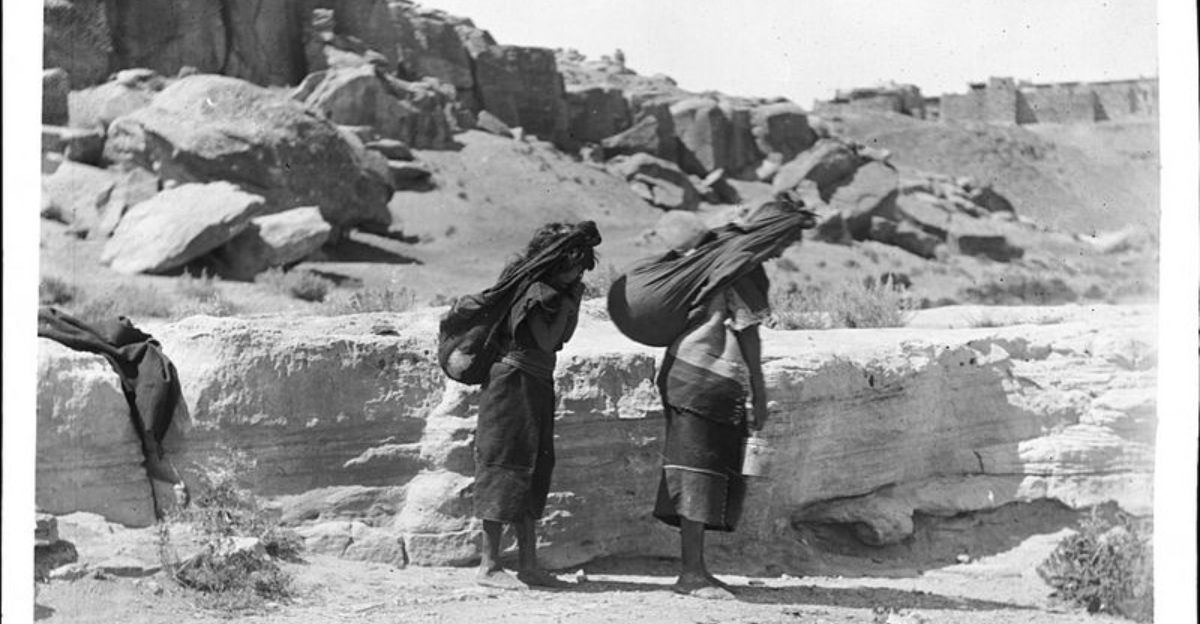15 Social And Workplace Norms Women Faced In The 1940s
The 1940s was a decade of dramatic change for women, especially during World War II when they entered factories and offices in record numbers.
But even as they proved their capabilities, society held tight to outdated expectations about their roles at home and at work.
Understanding these restrictions helps us appreciate how far we’ve come and reminds us why equality matters.
1. Hired Mainly For Women’s Work
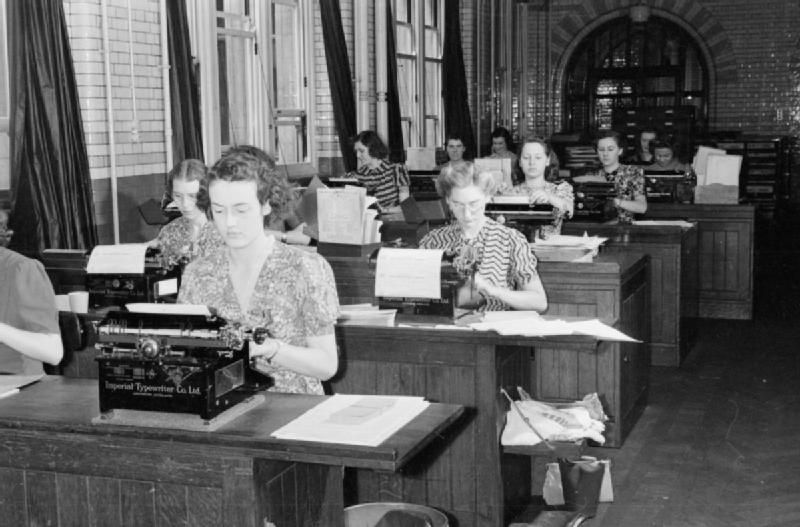
If you were a woman looking for employment, your options were pretty limited to what society deemed “appropriate.”
Typing pools, sewing factories, and filing rooms became the default destinations for female workers.
Employers assumed women’s delicate hands were perfect for repetitive tasks but not strong enough for decision-making roles.
This segregation kept talented women trapped in low-paying positions regardless of their actual abilities or ambitions.
2. Earning Significantly Lower Wages
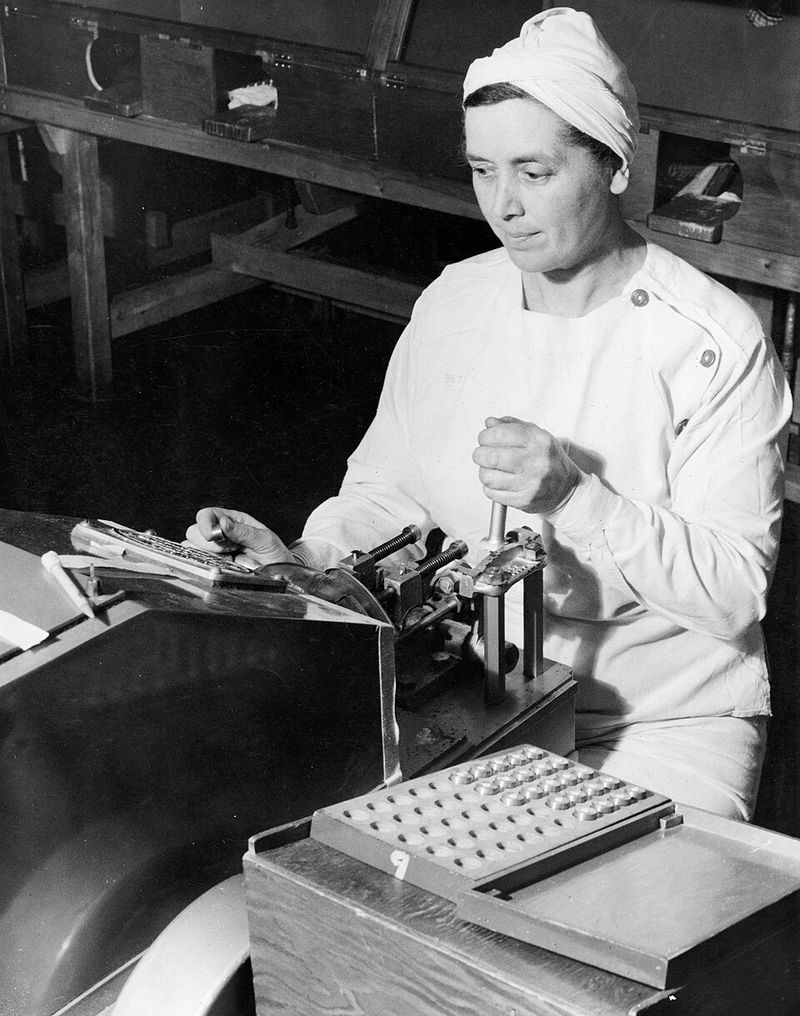
Picture doing the exact same job as your male colleague but receiving only half his paycheck at the end of the week. Unfortunately, this wasn’t hypothetical – it was standard practice across nearly every industry.
Employers justified the wage gap by claiming men had families to support, ignoring the many women who were also breadwinners. Equal work rarely meant equal pay, and complaining about it could get you fired.
3. Required To Wear Dresses And Heels

Collins, Tudor Washington, 1898-1970, photographer, licensed under CC BY 4.0. Via Wikimedia Commons.
Comfort took a backseat to conformity when it came to workplace attire.
Women couldn’t just throw on practical pants or comfortable shoes – strict dress codes demanded skirts, stockings without runs, and polished heels daily.
Even in physically demanding jobs, these impractical outfits were mandatory.
Try operating heavy machinery or running errands in a tight skirt and three-inch heels, then imagine doing it every single day without complaint.
4. Expected To Leave The Workforce After WWII
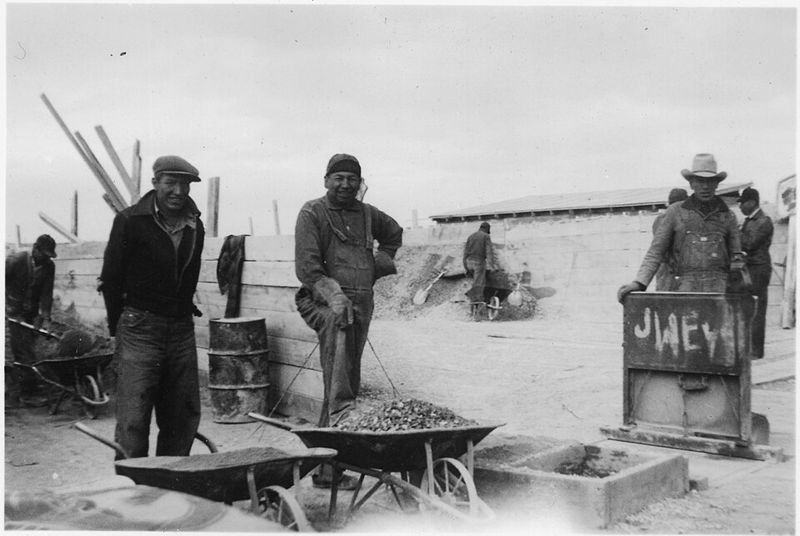
When soldiers returned home from the battlefields, women who had kept the country running were suddenly told their services were no longer needed.
Factories that once welcomed female riveters and welders now posted “men only” job listings.
Imagine working hard for years, mastering complex machinery, then being told to simply go home because someone else deserved your job more.
That was reality for millions of women who had no choice but to step aside.
5. Discouraged From Higher Education
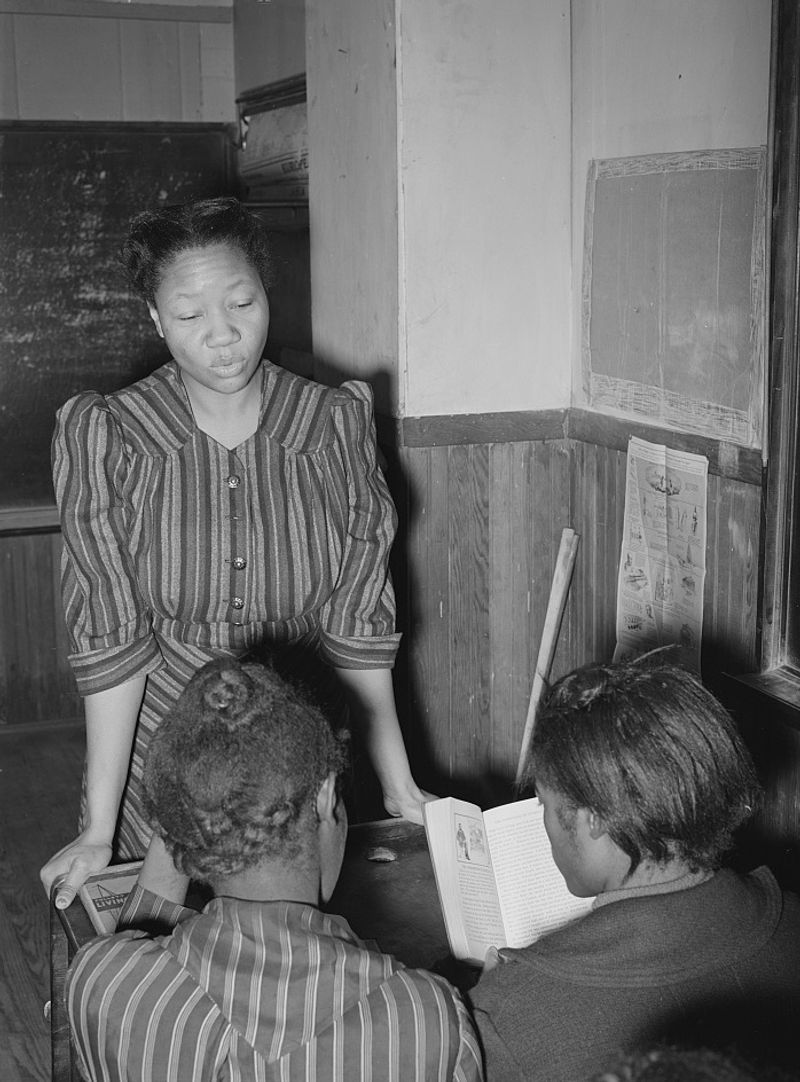
College wasn’t completely off-limits, but your major choices certainly were. Young women interested in engineering, law, or business faced tremendous pressure to pursue “feminine” fields like teaching or nursing instead.
Guidance counselors and parents alike warned that too much education would make women unmarriageable. The message was clear: intellectual development mattered less than landing a husband, and studying anything too challenging might scare potential suitors away.
6. Needed Husband’s Approval For Financial Decisions
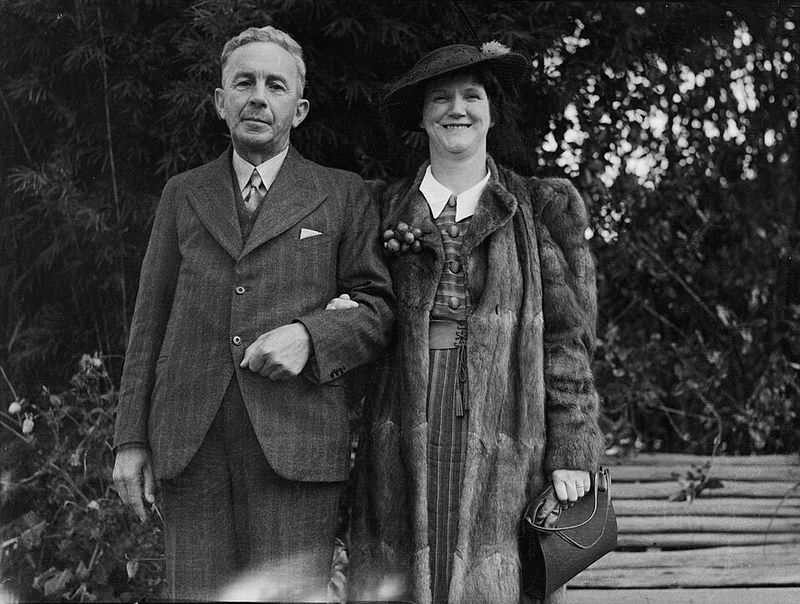
Collins, Tudor Washington, 1898-1970, photographer, licensed under CC BY 4.0. Via Wikimedia Commons.
Banking while female meant bringing along a man to vouch for you. Women couldn’t open certain accounts, apply for loans, or make significant purchases without a husband’s signature on the dotted line.
Even if you earned your own money, the law treated you like a child who couldn’t be trusted with financial matters.
This dependence trapped many women in unhappy marriages because leaving meant losing economic survival.
7. Expected To Prioritize Homemaking While Working
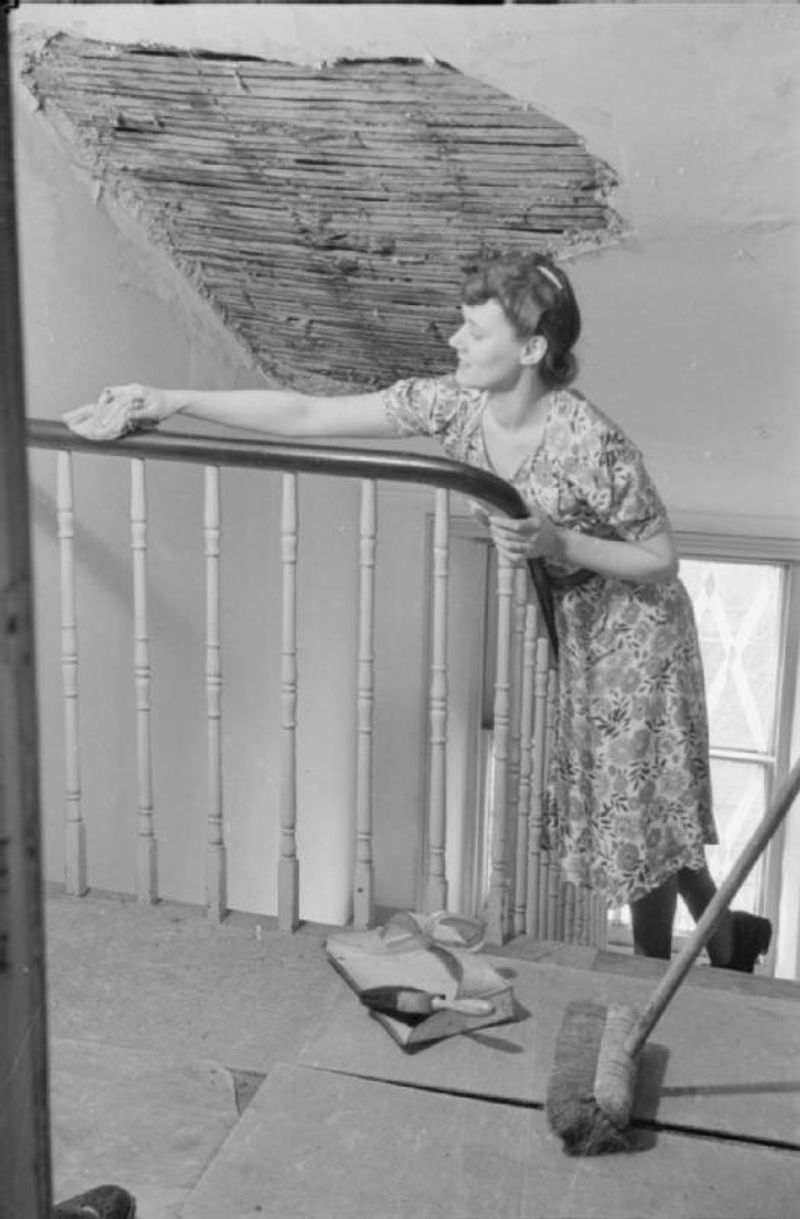
Holding down a job didn’t excuse you from domestic duties – it just meant you now had two full-time responsibilities.
Society expected working women to maintain spotless homes, prepare elaborate meals, and raise perfect children without breaking a sweat.
There was no such thing as splitting household chores equally. After eight hours at the office, women came home to another shift of cooking, cleaning, and childcare while husbands relaxed with newspapers.
8. Fired Or Pressured To Quit When Pregnant
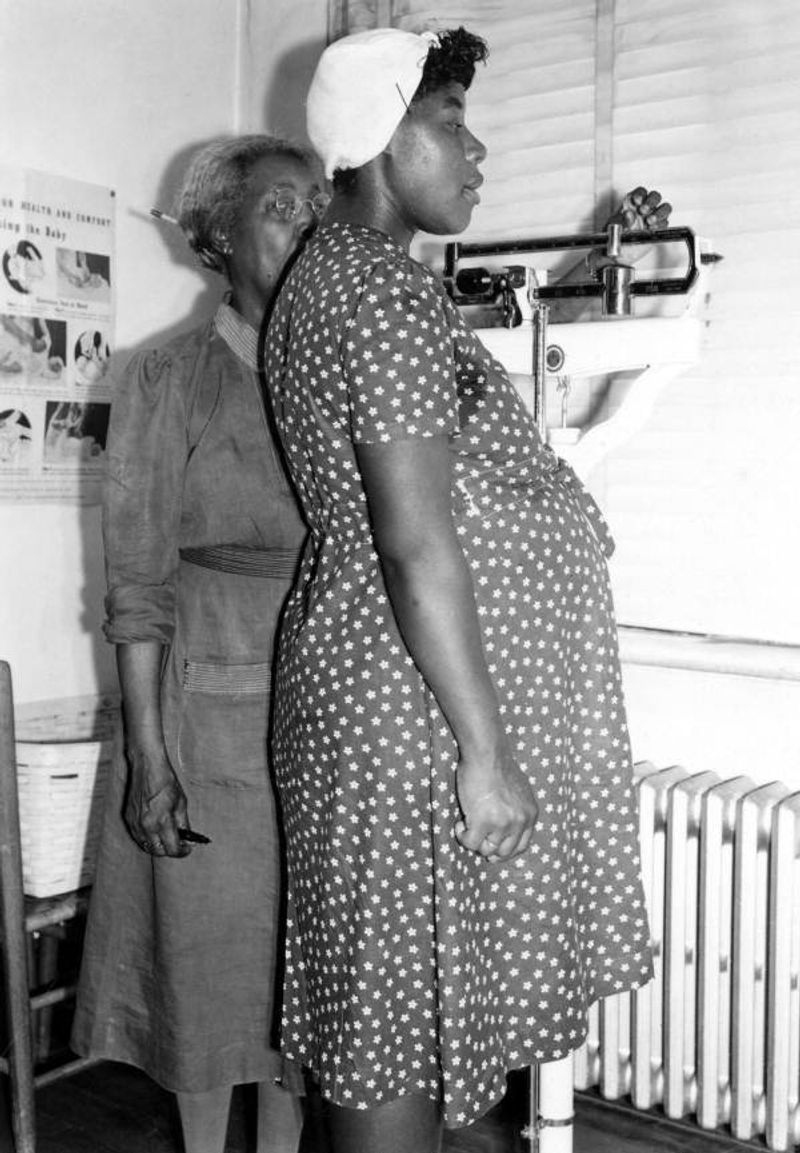
Pregnancy announcements that should have brought joy instead triggered job terminations. Employers routinely fired expectant mothers or created such hostile conditions that women had no choice but to resign.
Maternity leave didn’t exist, and the idea of accommodating pregnant workers seemed absurd to most bosses.
Motherhood and employment were viewed as incompatible, forcing women to choose between career and family in ways men never faced.
9. Strict No Fraternization Rules With Male Coworkers
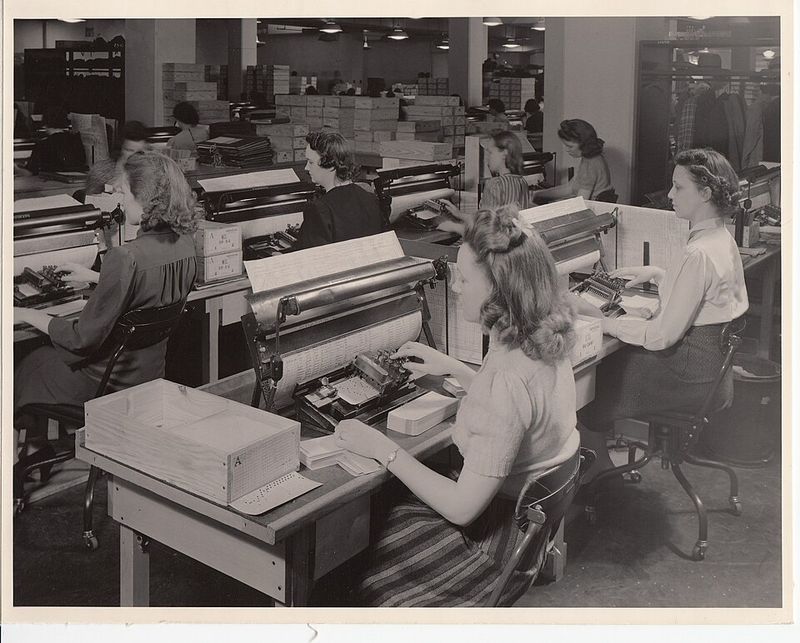
Workplace friendships across gender lines were heavily policed and often forbidden entirely.
Companies enforced strict policies preventing women from socializing with male colleagues, even during lunch breaks or after work.
These rules supposedly protected women’s reputations but actually isolated them professionally.
Without access to informal networking opportunities where men bonded and shared information, women missed crucial career advancement opportunities hidden in casual conversations.
10. Told Leadership And Ambition Were Unfeminine
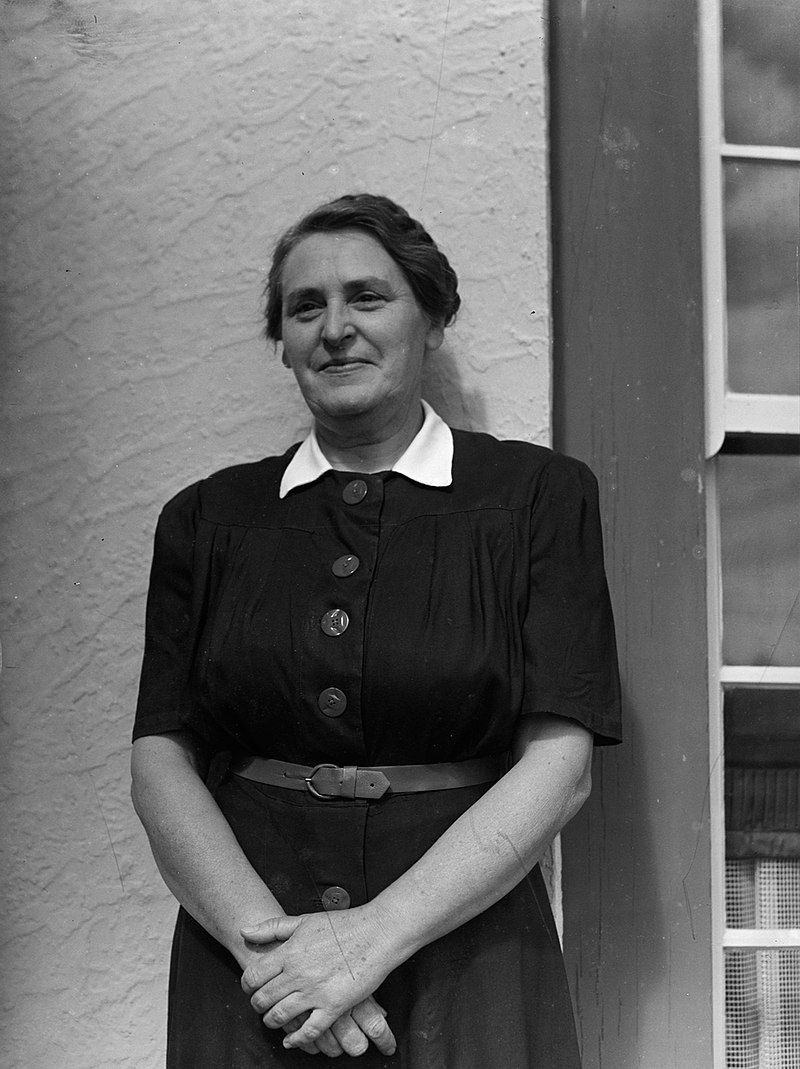
Collins, Tudor Washington, 1898-1970, photographer, licensed under CC BY 4.0. Via Wikimedia Commons.
Assertiveness in women was labeled as bossiness, aggression, or worse – unfeminine behavior that would repel potential husbands.
Ambitious women were told they were trying to be men instead of embracing their natural roles.
Speaking up in meetings, proposing new ideas, or seeking promotions could damage your reputation permanently.
The qualities praised in male leaders – confidence, decisiveness, vision – were considered character flaws when displayed by women, creating impossible double standards.
11. Expected To Run Households While Men Relaxed
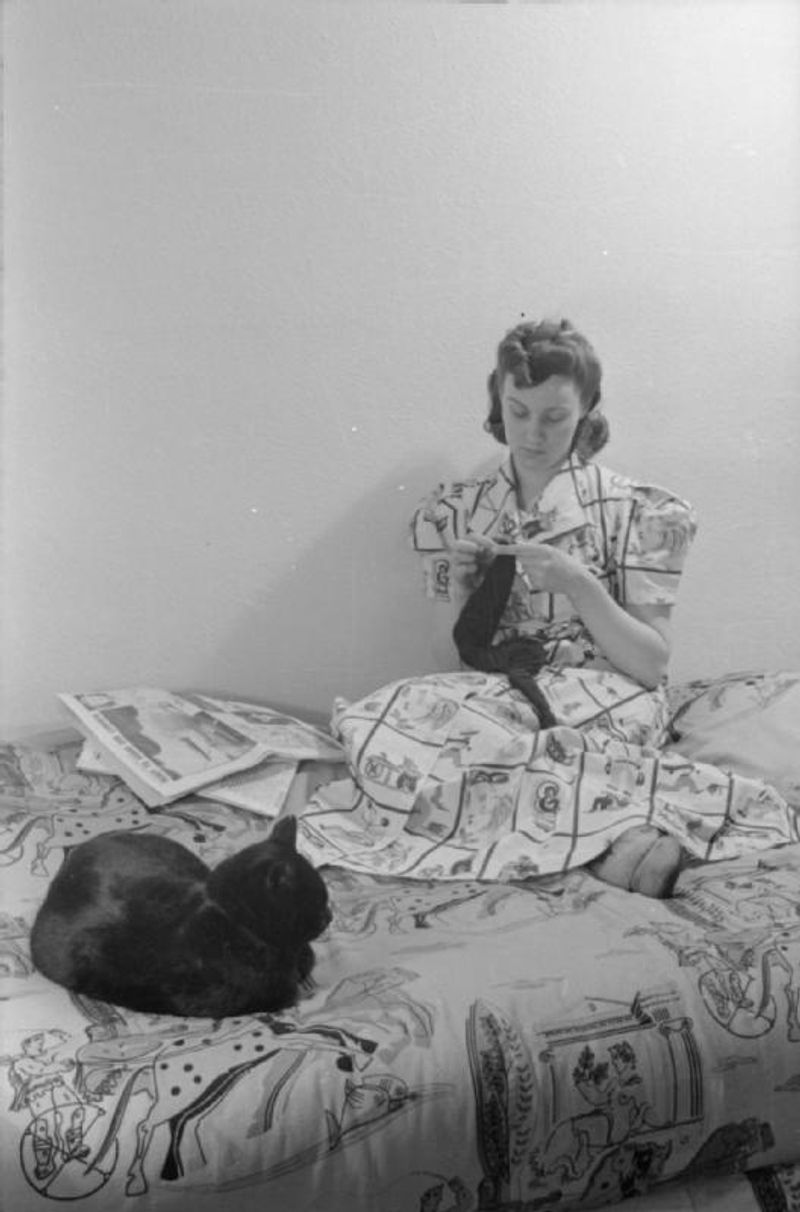
After-work hours looked vastly different depending on your gender. Men came home to relax, read newspapers, and enjoy hobbies while their wives cooked dinner, bathed children, and cleaned up afterwards.
This arrangement was considered natural and fair since men were breadwinners – even when wives also worked outside the home.
12. Encouraged To Volunteer Rather Than Seek Employment

Society praised women for charitable volunteer work while discouraging paid employment. Unpaid labor for churches, schools, and community organizations was deemed appropriately feminine and selfless.
Volunteering kept women busy without threatening male employment or disrupting traditional gender roles.
However, it also meant women contributed countless hours of skilled work without compensation, economic independence, or professional recognition that could advance their futures.
13. Expected to Tolerate Inappropriate Comments
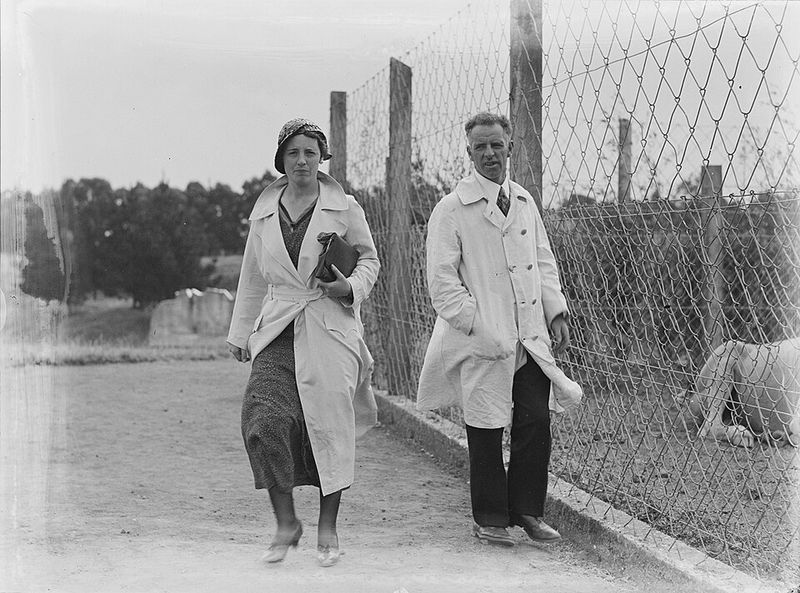
Collins, Tudor Washington, 1898-1970, photographer, licensed under CC BY 4.0. Via Wikimedia Commons.
Unwanted comments about appearance, unsolicited touching, and crude jokes were dismissed as harmless flirtation that women should accept graciously.
Complaining marked you as overly sensitive or a troublemaker who couldn’t take a joke.
No policies protected women from harassment, and reporting inappropriate behavior typically resulted in the victim being fired rather than the perpetrator.
Silence became survival strategy, teaching women their comfort mattered less than male entitlement.
14. Denied Military Roles Beyond Nursing
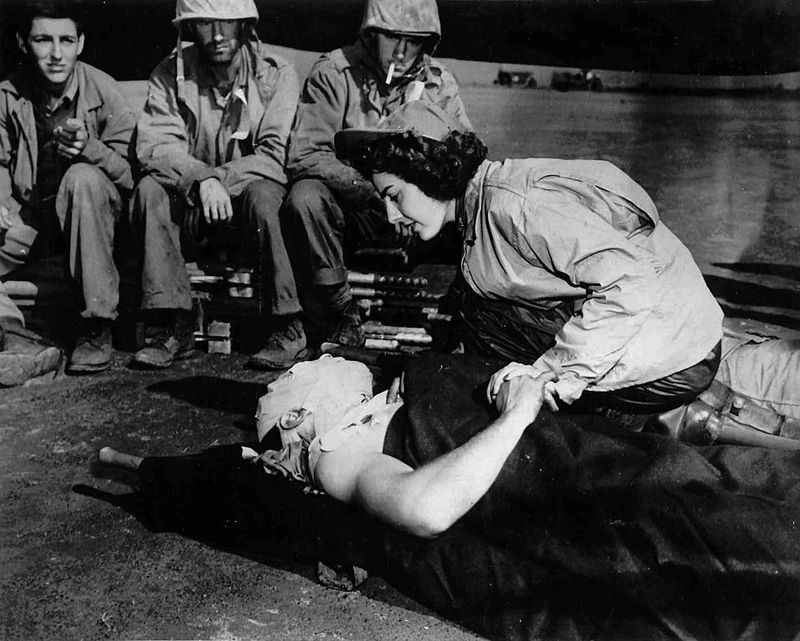
Women who wanted to serve their country during wartime faced severe limitations on how they could contribute.
Combat roles, piloting, and most technical positions remained firmly closed, channeling women into nursing or administrative support.
Even though women proved themselves capable in every role they were allowed, military leadership refused to expand opportunities.
Patriotism apparently had gender limits, with women’s sacrifices valued less than men’s contributions.
15. Praised As Patriotic During War, Then Sent Home

Collins, Tudor Washington, 1898-1970, photographer, licensed under CC BY 4.0. Via Wikimedia Commons.
One day you’re a patriotic hero keeping America strong, the next you’re an obstacle preventing men from finding work. The messaging whiplash women experienced was stunning in its hypocrisy and speed.
Wartime propaganda celebrated women’s contributions with posters and praise, but peacetime brought completely opposite messages about their proper place.



